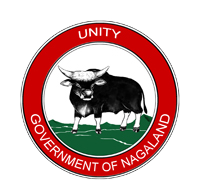A. INTRODUCTION
The State department of Agriculture was established as a full fledged department in the year 1963 headed by Director with the declaration of Nagaland as the 16th state under the Indian Union. The department has attended and celebrated its 50 years on 4th Dec 2013 in Kohima, Nagaland. The genesis of the State department of Agriculture being old as the statehood has its root back in 1910 to early 1920, where the British Raj Agriculture as part of developmental activities and administration started with few nucleus staff called as Agriculture Demonstrator and “Kheti Babus”. During 1952-62 two District officers functioned under the direct control of Secretary Development in the nascent Secretariat as DAO Kohima and DAO Tuensang. The progeny of the Department of Agriculture are the Department of Animal Husbandry & Veterinary (Erswhile Deptt of VS&AH), CO-operation, Fishery, Soil and Water Conservation, Irrigation & Flood Control, Horticulture and Land Resources (Erswhile Waste Land Deptt.).
DEPARTMENT OF AGRICULTURE, NAGALAND, KOHIMA
Nagaland is a hilly State with mountainous terrain richly endowed with natural resources. Predominantly an agrarian State with 70 % of its population engaged and dependent on Agriculture. Traditional Jhum/shifting cultivation is popular in the State due to topographical terrain. Mixed cropping pattern is practiced incorporating cereals, pulses, oilseeds, tuber crops, condiments and spices using local cultivars which are organic in nature. The larger area under WTRC/TRC falls in the foothills of the State.
During the 12th Five Year Plan GOI has launched various National Flagship Programmes emphasizing convergence of activities for sustainability in Agriculture Development. Intervention of CSS programmes like NFSM, ATMA, RKVY, NMOOP, NMAET,NMSA, NEC, EARAS and PMKSY has contributed enormously in the field of Agriculture development. The department has carried forward these programmes in line with the GOI guidelines benefitting the farming community at large.
The department target to achieve food security by ’2025’ A.D. Natural resources based sustainable Agriculture is decreasing due to decline in eco-system and man-made activities. Therefore, efficiency is mediated for improvement in production and productivity to achieve food security.
OUR MISSION / POLICY STATEMENT:
Our Vision:
A feasible and economically viable Agriculture in Nagaland by 2025 A.D.
Our Mission:
Increase subsistence Agriculture to commercial agriculture in a sustainable manner by extending demand driven services to farmers
Promote Organic Agriculture in the hilly terrains
Pioneering the State in Rainfed Farming System
Our Goals:
Increase crop production and productivity
Empower and uplift the living standard of farming community
Promote farm mechanization wherever feasible
Achieve Food Security by 2025A.D.
Empowerment of small and marginal farmers considering gender equality
Mechanize hill Agriculture
Resilient Agriculture
STRATEGIES:
1. Improve Farm Water Management
2. Capacity building as upscaling of skill
3.Strengthening of extension services for effective transfer and adoption of appropriate
technologies
4. Practice of Double, inter, relay and mixed cropping
5.Emphasize Integrated Pest Management (IPM)
6.Promotion of Organic farming in selected area
7.Commercialization of selected agricultural Crops
8.Stabilization & intensification of Jhuming practices
9.Strengthening of Research and Development of Rainfed Agriculture
11.Promotion of post harvest management technology for agricultural Marketing
12.Mechanization of Agriculture
13.Promote Women in Agriculture
14. Adopt ICT in Agriculture
15.Timely distribution of quality seeds
16.Adoption of seed village and seed infrastructure development
17. Promote Indigenous practices in context with climate change
18. Promote Integrated Nutrient Management (INM)
19. Adoption of SRI, line transplanting and direct seeding
20. Identification and promotion of local cultivars (TLS)
21. Advocate soil amelioration




